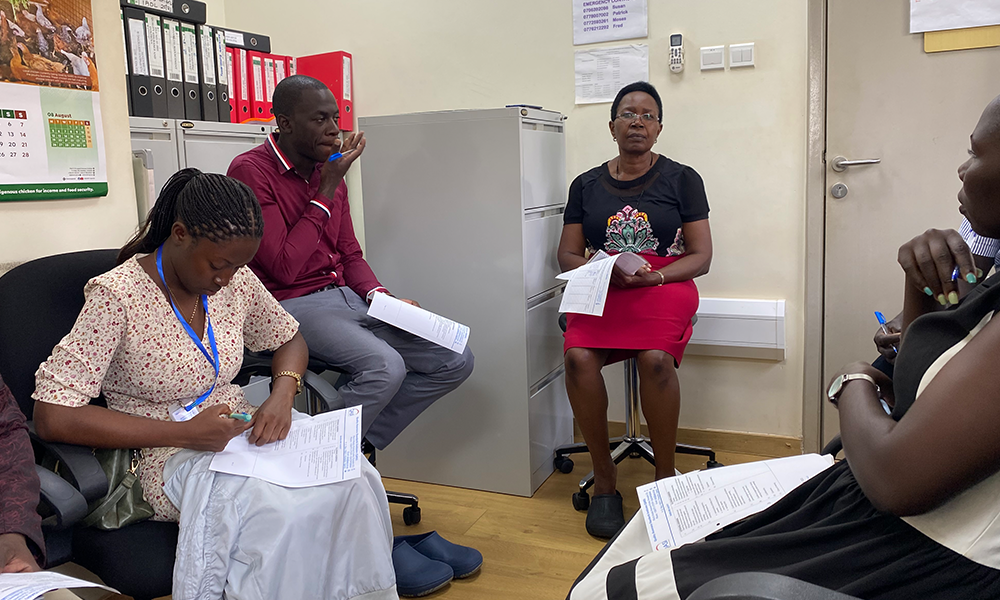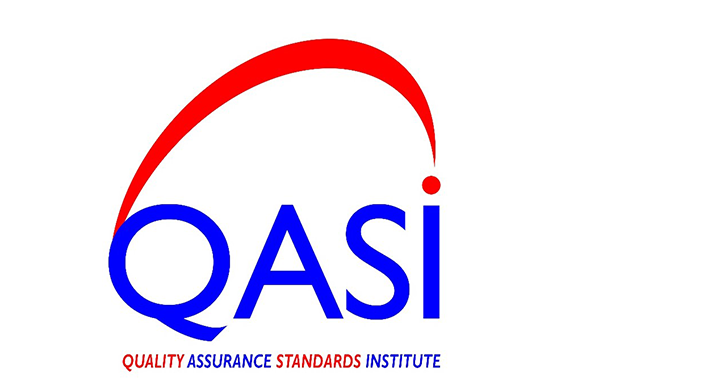ISO 9001 Quality Management System

Businesses can’t simply hope for good quality; they need a structured system to ensure it. ISO 9001, used by millions of companies globally, offers a proven framework for managing quality. This standard helps businesses consistently meet and even surpass customer expectations.
ISO 9001, first introduced in 1987, is the foundational standard for quality management. It outlines steps for setting up, running, and continually improving a quality system within any organization. Based on seven quality principles, ISO 9001 helps businesses become more efficient and satisfy customers better. Contrary to popular belief, ISO 9001 is suitable for all types of organizations, regardless of their size or industry. To stay relevant, ISO 9001 has been updated several times. The latest version, ISO 9001:2015, was confirmed in 2021 to remain useful and effective.
ISO 9001 is the world’s most widely used standard for quality management. It helps companies succeed in the long run by ensuring quality products and services. Customers and partners trust businesses with ISO 9001 certification, which boosts business.
While ISO 9001 sets basic requirements, companies can customize their quality system to fit their specific needs. They should identify their unique challenges and opportunities to set goals and create processes that achieve those goals.
ISO 9001 places customers at the center. It emphasizes meeting and exceeding customer expectations. Companies that implement ISO 9001 prioritize understanding customer needs, gathering feedback, and continuously improving to satisfy customers. This customer focus is a key reason for ISO 9001’s success.
ISO 9001 is structured similarly to other management system standards, making it easier to integrate with systems like ISO 14001 (environmental), ISO/IEC 17025 (Testing and Calibration), and ISO/IEC 45001 (OHSMS). This integration streamlines processes, reduces costs, and helps companies better manage various commitments.
Many companies struggle to fully benefit from ISO 9001 implementation. This is often because they see it as just paperwork or have trouble identifying problems and improving continuously. Our training courses, for both implementers and auditors, are designed to help you overcome these challenges.
QASI is excited to support you, contact us to begin with the first step!
Explore our courses and find the perfect fit for your needs.
- ISO 9001 Implementers’ course
- ISO 9001 Auditors’ course based on ISO 19011
The ISO 9001 training course is intended for:
- Managers and consultants seeking to know more about quality management
- Professionals wishing to get acquainted with ISO 9001 requirements for a QMS
- Individuals engaged in or responsible for quality management activities in their organization
- Individuals wishing to pursue a career in quality management
Training Days: 5
Exam Duration: 1 hour
Retake Exam: Yes
For additional information, please contact info@qasi.co.ug
A.1.1 ISO 9001 Implementers’ course
ABOUT THIS COURSE
Course Description:
The primary purpose of the ISO 9001 Implementers’ course is to equip individuals with the knowledge and skills necessary to establish, implement, maintain, and continually improve a quality management system (QMS) within an organization.
Course objectives:
- Provide a deep understanding of ISO 9001 requirements: Participants will learn the key principles and clauses of the standard, enabling them to interpret and apply them effectively.
- Teach practical implementation techniques: The course will cover step-by-step guidance on how to implement a QMS, including documentation, process mapping, and internal auditing.
- Develop leadership and management skills: Participants will learn how to lead and manage a QMS implementation project, including effective communication, decision-making, and problem-solving.
- Promote a customer-focused approach: The course emphasizes the importance of understanding and meeting customer needs, ensuring that the QMS is aligned with organizational goals
Certification
On successful completion of the course “Certificate of Successful Completion” will be issued to participants.
Resource Material
ISO 9001 international standard.
Hand-outs and course material will be supplied to all participants
Training Package- Power point Presentations
Who Should Attend:
- Managers and consultants seeking to know more about quality management
- Professionals wishing to get acquainted with ISO 9001 requirements for a QMS
- Individuals engaged in or responsible for quality management activities in their organization
- Individuals wishing to pursue a career in quality management
- Top level Management.
- Mentors
Course Prerequisites
- Quality management principles: A general understanding of quality management concepts, such as customer focus, process approach, continuous improvement, and evidence-based decision-making.
- Organizational structure: Familiarity with the basic structure and functions of organizations.
- Business processes: Knowledge of common business processes and how they relate to quality management.
A.1.2: ISO 9001 Auditors’ course based on ISO 19011
ABOUT THIS COURSE
Course Description:
- The ISO 9001 Auditors’ course is designed to equip individuals with the knowledge, skills, and techniques necessary to conduct effective internal and external audits of quality management systems (QMS) that conform to the ISO 9001 standard. The course covers a wide range of topics, including:
- ISO 9001 requirements: A comprehensive understanding of the key principles, clauses, and requirements of the ISO 9001 standard.
- Audit planning and preparation: Techniques for planning and preparing for audits, including developing an audit plan, selecting audit team members, and gathering necessary documentation.
- Audit techniques: Effective auditing techniques, such as interviewing, observation, and sampling.
- Evidence collection and evaluation: Methods for collecting and evaluating audit evidence, including objective evidence and records.
- Nonconformity management: Identifying, documenting, and addressing nonconformities found during audits.
- Audit reporting: Preparing clear and concise audit reports that effectively communicate audit findings.
- Continuous improvement: The role of audits in driving continuous improvement within organizations
Course objectives:
To equip participants with knowledge and skill to:
- Conduct effective internal and external audits of ISO 9001-certified QMSs.
- Identify nonconformities and recommend corrective actions.
- Evaluate the effectiveness of QMSs in meeting organizational objectives.
Certification
On successful completion of the course “Certificate of Successful Completion” will be issued to participants.
Resource Material:
ISO 9001 international standard.
ISO 9011 international standard.
Hand-outs and course material will be supplied to all participants
Training Package- Power point Presentations
Who Should Attend:
- Quality managers
- Internal auditors
- External auditors
- Consultants
- Quality engineers
Course Prerequisites
- ISO 9001 standard: A general knowledge of the key principles, clauses, and requirements of the ISO 9001 standard.
- Quality management systems: Familiarity with the structure and operation of quality management systems.
- Auditing principles: Basic understanding of auditing concepts, such as evidence collection, objective evaluation, and reporting.
A.1.3 Risk management course based on ISO 31000
ABOUT THIS COURSE
Course Description:
- The ISO 31000 Risk Management course provides comprehensive training on the principles, techniques, and best practices for effectively managing risk within organizations. Based on the internationally recognized ISO 31000 standard, this course equips participants with the knowledge and skills necessary to implement a robust risk management framework.
Key topics covered in the course include:
- Risk management principles: Understanding the fundamental concepts of risk management, including risk identification, assessment, evaluation, treatment, and monitoring.
- Risk assessment techniques: Learning various methods for identifying and assessing risks, such as risk identification workshops, hazard analysis, and failure mode and effects analysis (FMEA).
- Risk evaluation and prioritization: Evaluating the significance of identified risks and determining appropriate response strategies.
- Risk treatment options: Exploring different approaches to treating risks, including avoidance, reduction, transfer, and acceptance.
- Risk communication and stakeholder engagement: Effectively communicating risk information to stakeholders and building consensus on risk management decisions.
Course objectives:
To equip participants with knowledge and skill to:
- Implement a comprehensive risk management framework aligned with ISO 31000.
- Conduct effective risk assessments and evaluations.
- Develop and implement appropriate risk treatment strategies.
- Communicate risk information effectively to stakeholders.
Monitor and review risk management activities to ensure ongoing effectiveness.
Certification
On successful completion of the course “Certificate of Successful Completion” will be issued to participants.
Resource Material:
ISO 9001 international standard.
ISO 3100 standard.
Hand-outs and course material will be supplied to all participants
Training Package- Power point Presentations
Who Should Attend:
- Risk managers: Professionals responsible for overseeing and implementing risk management programs.
- Senior executives: Leaders who need to understand and manage risks at the strategic level.
- Department heads: Managers who need to address risk management issues within their departments.
- Consultants: Professionals who provide advice and guidance on risk management.
Course Prerequisites
- Risk management principles: A general understanding of risk management concepts, such as risk identification, assessment, evaluation, treatment, and monitoring.
- Organizational structure: Familiarity with the basic structure and functions of organizations.
- Business processes: Knowledge of common business processes and how they relate to risk management.
Who should attend?
The ISO 9001 training course is intended for:
- Managers and consultants seeking to know more about quality management
- Professionals wishing to get acquainted with ISO 9001 requirements for a QMS
- Individuals engaged in or responsible for quality management activities in their organization
- Individuals wishing to pursue a career in quality management
Other Information
Training Days: 5
Exam Duration: 1 hour
Retake Exam: Yes
For additional information, please contact info@qasi.co.ug







